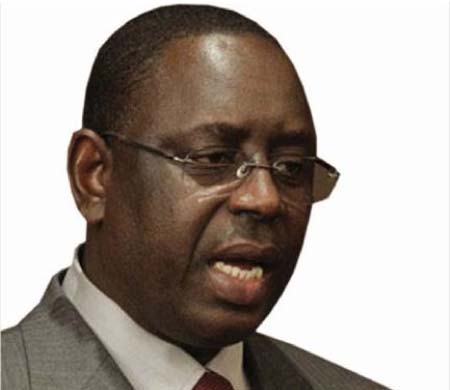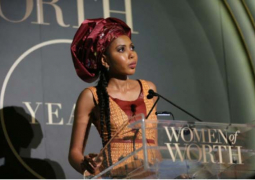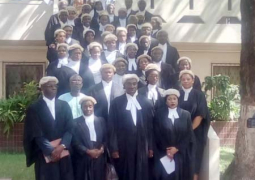
The results of Senegal’s most acrimonious and hotly contested referendum held on Sunday, ended with victory for the ‘Yes’ vote with 62.54 per cent against about 37.44 per cent for the ‘No’. The most symbolic victories were no doubt scored in Dakar where the vocal dissident Mayor, KhalifaSall, who led the ‘No’ camp in the capital was defeated in his own backyard.
With the absence of scientific opinion polls, hardly anyone knew for certain which side were going to win up to the very last minute. Therefore, there was panic in the ‘Yes’ camp when the first results from the Touba area were announced, which showed a very large victory for the ‘No’ camp in virtually all the polling stations in that area, although the region was won by the ‘Yes’ vote.
Some political analysts attributed the ‘Yes’ camp’s poor performance in the Touba area to the unpopularity of one of the senior members of the ruling APR, Moustapha Cisse Lo, who was recently elected Speaker of the ECOWAS Parliament. He was even accused of opening fire at some opposition supporters during the campaign.
However, when results from other places, particularly in Fatick and the Fouta area began to come in, the scales started to tilt in favour of the ‘Yes’ camp.
In the final analysis, apart from the region of Sedhiou, which voted overwhelmingly for the ‘No’ camp, all of the other regions were won by the ‘Yes’ camp, including most of the votes from the Senegalese diaspora.
While the Mbacke commune scored the highest ‘No’ vote with 78%, the ‘Yes’ vote scored highest in Fatick region with 75%, as well as in other places like Louga 70%, TambaCounda 67%, Kaolack 60%, Matam 64%, St. Louis and Ziguinchor, each with 57%. Also, the ‘Yes’ camp made some impressive inroads into some opposition strongholds like the region of Thies, capturing it from the “King of Thies” Idrissa Seck who had always maintained his iron-grip dominance of the area.
No doubt, one of the major losers in the referendum is the Mayor of Dakar, Khalifa Sall, whose meteoric rise in Senegalese politics seems to have suffered a major blow. For quite sometime now, he has not only revolted against the leadership of Parti Socialiste (PS), which recently led to violence, allegedly perpetrated by his supporters during a PS executive meeting, he has also been tipped to harbour the ambition of contesting the next presidential elections.
Therefore, his crushing defeat in Dakar seems to have dealt a big blow to whatever ambitions he may have had and some political analysts say it will take him a long time to recover from this humiliating defeat.
One notable phenomenon of the referendum was the low turn-out, which was put at less than 40%, which most people attribute to both the short notice for the referendum and the lack of understanding amongst the general public of the 15 proposals put forward to amend the constitution.
Out of the more than 5 million registered voters, only slightly more than 2.7 million people cast their votes, with the ‘Yes’ camp obtaining more than 1.9 million votes and the ‘No’ campa getting 733,725 votes, a crushing defeat indeed.
Reacting to the results, the former Prime Minister Aminata ‘Mimi’ Toure, who was defeated by KhalifaSall in the Grand Yoff commune of Dakar in the last local government elections, said; “I think all politicians should take a great lesson from the referendum as the Senegalese people are mature and they understand the issues despite the massive campaign of misinformation and intoxication; the people were able to distinguish the good seed from the bad.” She went on to urge everyone to now concentrate on the national interest rather than continue to pursue partisan interests.
In his reaction to the defeat of the ‘No’ camp for which he campaigned very hard, another former Prime Minister and leader of Rewmi party, Idrissa Seck attributed the low turn-out to the contempt and rejection that the people manifested in President Macky Sall’s ‘wax-waxeet’ (going back on his word). “In terms of some defections in the ranks of the ‘No’ camp, Idrissa Seck said; “It seems the ‘Yes’ camp’s efforts to buy out some mayors and others within our camp did not have much effect. Most people remained very faithful to our cause against all the odds,” he said.
Meanwhile, the Autonomous National Electoral Commission (CENA) has made positive assessment of the organization of the referendum, saying that it was well conducted both at home and abroad, with election materials and other logistics available in all the polling stations on time.
The president of CENA, Doudou Ndir said although some incidents were noted here and there, but they have not in any affected the peaceful nature of the polls.
The results mean that President Macky Sall has got his way to carry out his proposed amendments to the constitution, which include the shortening of the presidential term from seven to five years, which however can only take effect after the elections in 2019. While he had the intention of applying that to his current term, but the Constitutional Council, the country’s highest body for the interpretation of the Constitution, said it could not be applied to this term as he had sworn to serve for seven years and therefore he cannot apply the law retroactively.
However, despite some of the fears expressed by some people during the campaign for the referendum that he may decide to seek a third term after the approval of the proposals, he has made it quite clear that has neither the wish to seek a third term nor is he eligible under the proposed amendments to do so.



